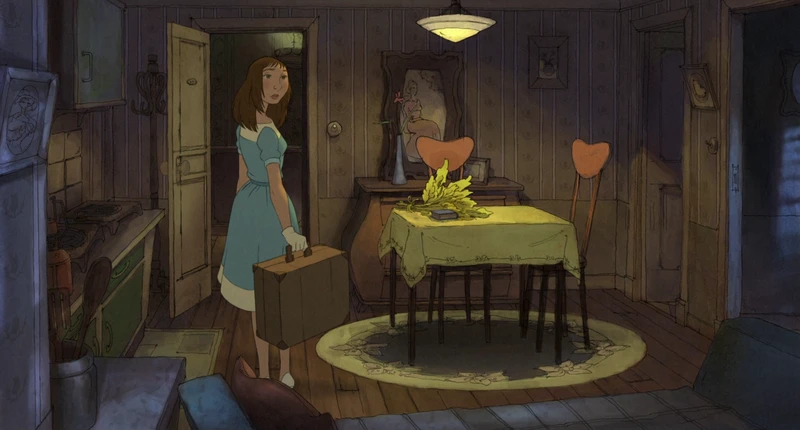L'Illusionniste AKA The Illusionist (2010)
| director: | Sylvain Chomet |
| release-year: | 2010 |
| genres: | animation, drama, philosophical |
| countries: | France, UK |
| languages: | Silent |
The guy from The Triplets of Belleville is back with a movie that looks exactly like The Triplets of Belleville.
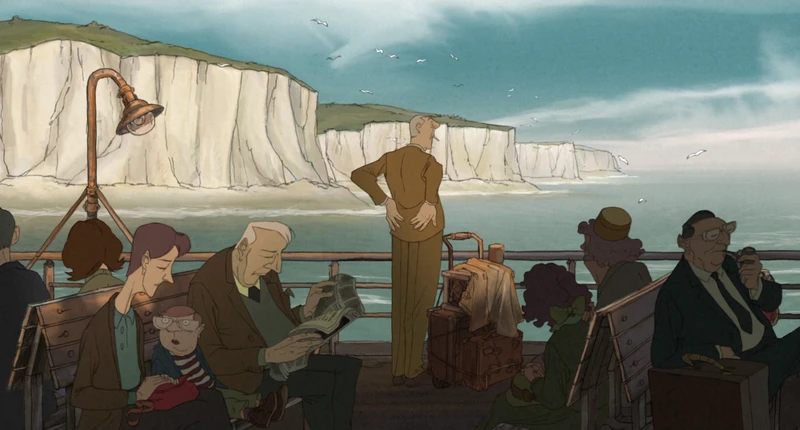
This one follows a stage magician around as he performs to ever-decreasing crowds in some sort of vague late-1930s-ish-but-maybe-actually-1950s Scotland. His long Triplets of Belleville face gets longer as life gets tougher, but he pushes ever onward with an honorless, this-is-just-how-life-is persistence.
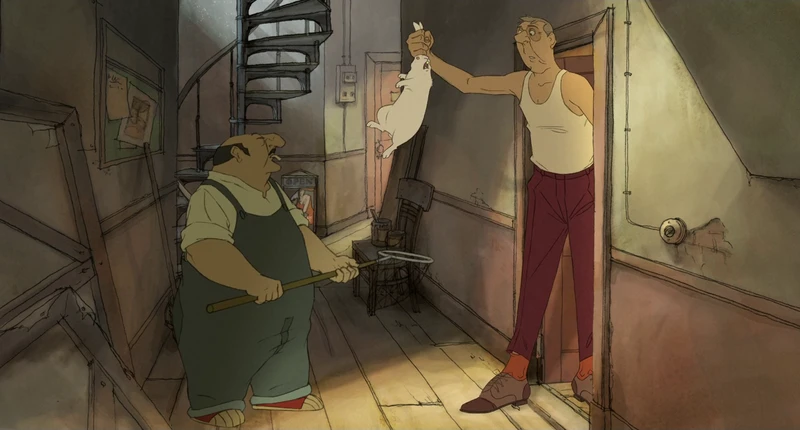
His illusions impress a young, poverty-stricken girl working in an inn. He finds her quaint, so he buys her a pair of shoes. This proves to be a mistake, and she latches on to him like a lost puppy and follows him around Scotland without his permission. Nobody speaks, of course, except in short, nonsensical utterances worthy of The Sims.
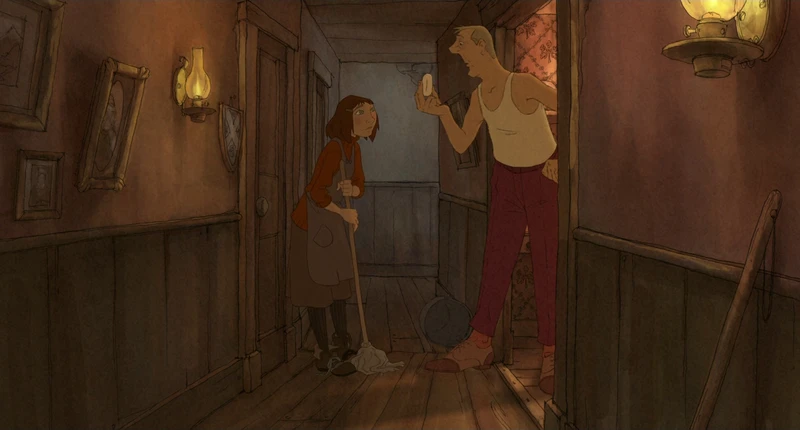
Completely failing to understand the concepts of employment, currency, finances, labor, or value, the girl moves in with the illusionist and demands a steady stream of fancy gifts. She is entirely unappreciative. The illusionist runs his personal economy into the ground accomodating her desires out of pure kindness, along with his own inability to make a good decision.
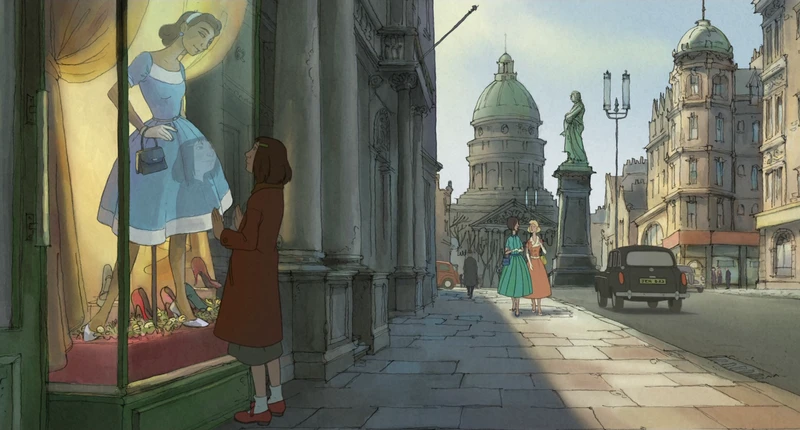
The visual style is absolutely gorgeous, of course. The music is mostly jazz, and mostly great. And, as in Triplets, it's a remarkably complex story, full of events and emotions and questions of ethics and morality, all managed without any dialogue. It's thoroughly depressing and dripping with despair, but punctuated with moments of light-hearted comedy.
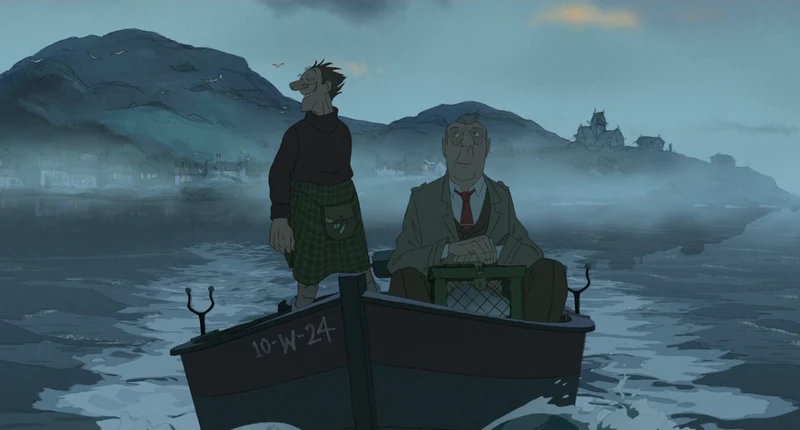
She's not intentionally conniving, but rather inherently selfish. He's not easily deceived, but rather inherently providing. It's a story about fallout when a giver and a taker inadvertently fall into each others circles, carried in the framing story of the struggle of surviving when society progresses away from once-viable careers, and both presented in a way that might lead a viewer to question capitalism itself.
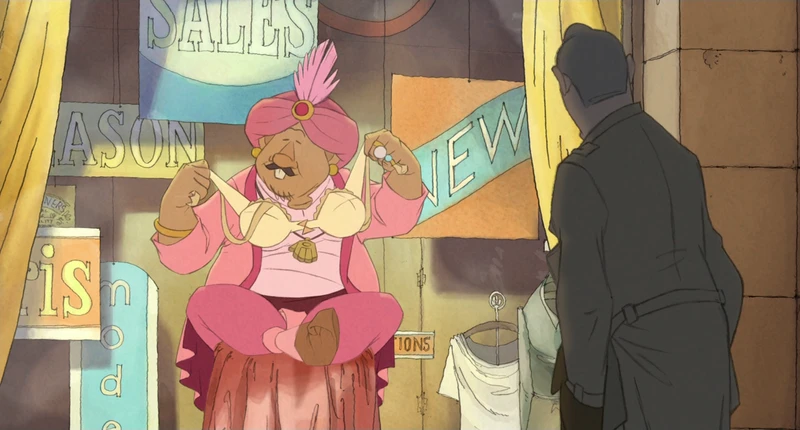
He briefly finds acceptance in a new niche, using his illusions in commercial product marketing, but is too bound to the purity of the artform to continue demeaning his skills.
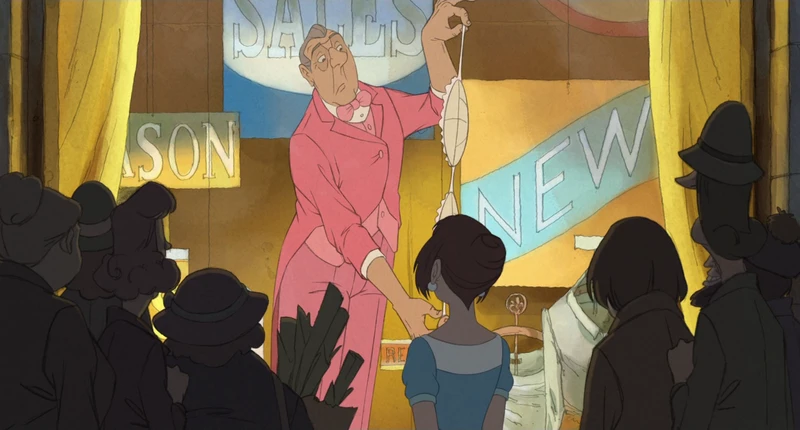
His career tanks, and she meets a neighbor who wants to date her. The illusionist slips silently away in the night, leaving her to the unknown.
